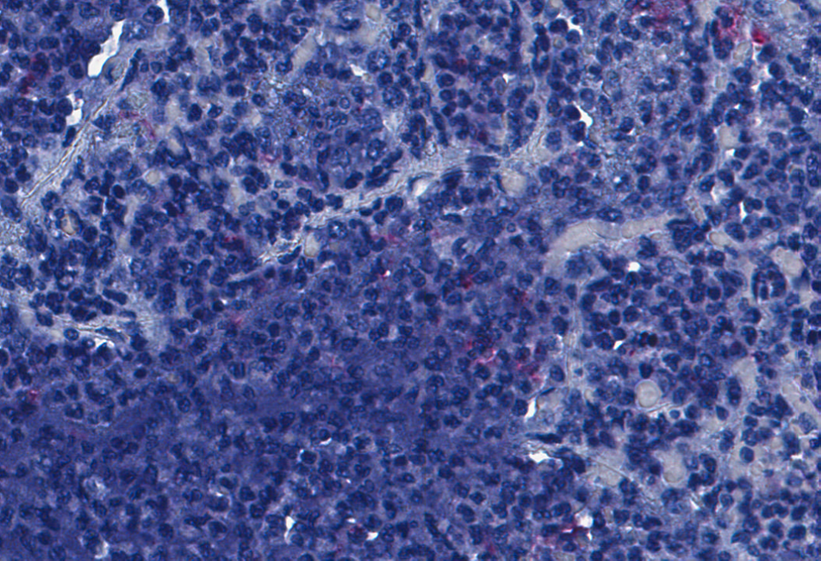
An infant with severe acute malnutrition died at home with a respiratory infection which led to identification of a notifiable condition
January 4, 2021
An 8-month old baby girl died at home after 3 days of vomiting and diarrhea, 5 days of poor feeding, 15 days of fever and cough, and 30 days of general illness. She was followed by the local health clinic for severe acute malnutrition and had been on nutritional supplements for two months with no information on clinical progress. She was not immunized.
While no other clinical records are available, her parents indicated on verbal autopsy that they sought care from the local health facility during her illness. The child was given antibiotics, but she was never hospitalized and ultimately died at home. Her parents indicated that the costs of her care prohibited other household payments.
Determining the Cause

CHAMPS laboratory tests, including Taqman Array Card (TAC) and immunohistochemistry, showed the presence of Streptococcus pneumoniae, which causes serious bacterial infections. Blood and spinal fluid also revealed presence of measles, but there was no sign of rash or measles pneumonia that suggested acute infection. While measles likely played some role in the child’s death, clinical history and other findings were not compatible with immediate or underlying cause of death. It’s likely the baby had measles some weeks before, but it was considered resolved at the time of death.
By measuring the child’s weight after death, CHAMPS confirmed that she was severely malnourished. Liver samples also showed accumulation of extra fat cells, a change that often indicates malnutrition. Malnutrition results in a weakened immune system, and the type of pneumonia that led to this death is often more aggressive in malnourished children. The child’s nutritional status was identified as the underlying cause of her death as it likely prevented her body from fighting off the infection.
Public Health Implications
Pneumonia is the single largest infectious cause of death in children worldwide, accounting for 15% of under-5 deaths. Streptococcus pneumonia is the most common cause of bacterial pneumonia in children. The World Health Organization (WHO) recommends that all children receive three doses of pneumococcal conjugate vaccine before 2 years of age to prevent against pneumonia. This vaccine has been introduced in 145 countries, with a global coverage estimate of 47%. In order to prevent future deaths from vaccine-preventable diseases, it is important to understand the barriers to receiving vaccination, whether financial, behavioral, or environmental. Regular immunization visits also provide opportunities to screen for nutritional status in areas where malnutrition is prevalent, and to begin nutrition management and follow-up as needed. CHAMPS site teams are developing Social Autopsy protocols to help identify potential gaps in care, and address possible barriers to health-seeking behavior.
Interested in CHAMPS’s pathology slide images?
Email data@champshealth.org to learn more!